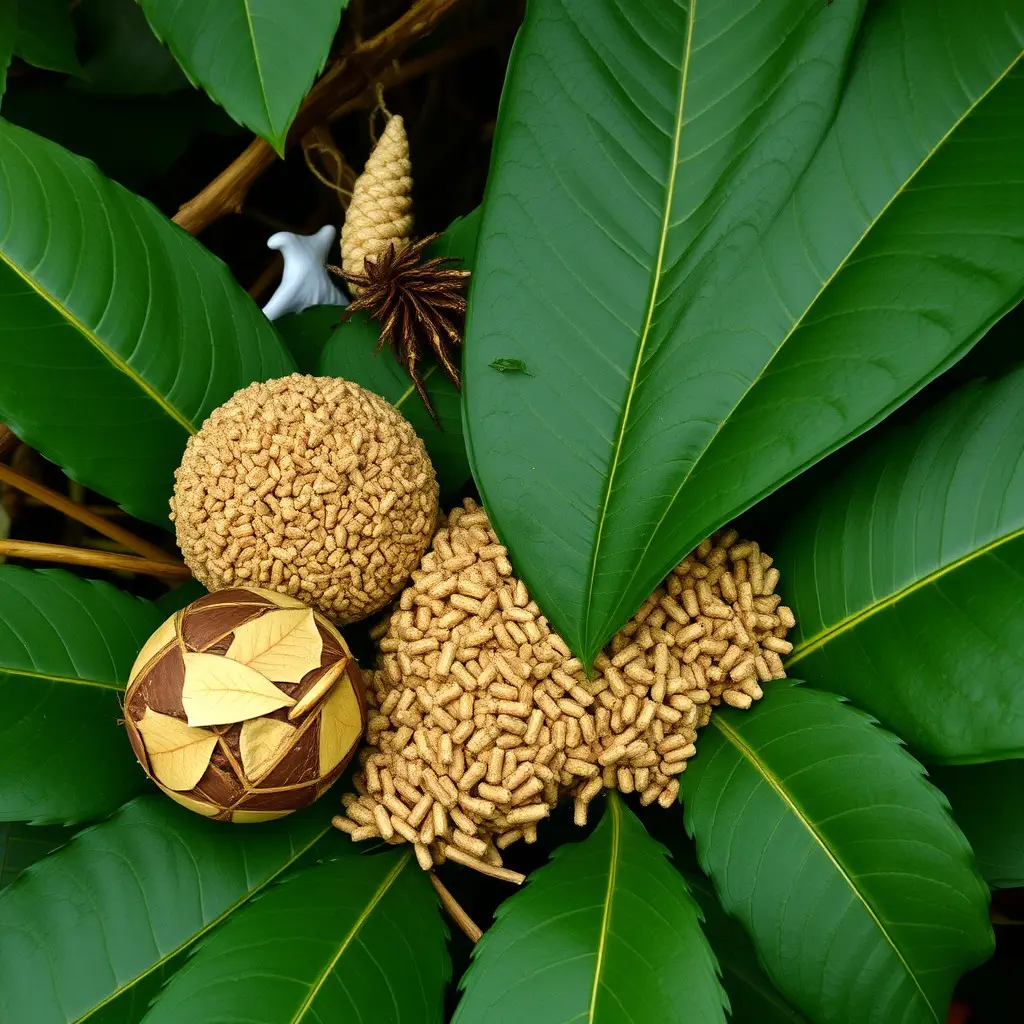Mitragyna speciosa, commonly known as Kratom, is a plant from Southeast Asia that has gained attention for its potential benefits in managing anxiety and stress, contributing to overall health improvement. The alkaloids mitragynine and 7-hydroxymitragynine within Kratom interact with opioid receptors, offering anxiolytic effects and promoting relaxation without causing sedation. Kratom is also recognized for its analgesic properties, which may help in managing chronic pain, and some users report that it supports immune system function and aids in achieving restful sleep. However, due to varying regulatory statuses and potential for abuse and dependency, it is crucial to use Kratom responsibly and under the guidance of healthcare professionals. The effectiveness of different strains like Maeng Da and Red Bali for stress management and overall health improvement varies among users, emphasizing the importance of personalized dosage and ongoing research to ensure safe and effective use. Regular consultation with a healthcare provider and careful consideration of individual responses are essential for those considering Kratom as part of their wellness regimen.
Exploring the intricate relationship between Kratom and relaxation, this article delves into how this botanical substance can serve as a natural aid for those seeking anxiety relief. We will navigate the nuanced effects of various Kratom strains on overall health improvement with Kratom, offering insights into their potential benefits for stress management and well-being enhancement. Join us as we unravel the therapeutic properties of Kratom that contribute to a more tranquil state of mind and a healthier life.
- Exploring Kratom's Role in Anxiety Relief and Promoting Relaxation
- Understanding Kratom's Impact on Overall Health Improvement
- Navigating Kratom Strains for Stress Management and Well-being Enhancement
Exploring Kratom's Role in Anxiety Relief and Promoting Relaxation

Mitragyna speciosa, commonly known as Kratom, has garnered attention in the realm of natural supplements for its purported effects on mood and well-being. Users often report that specific strains of Kratom can provide a sense of calm and relaxation, which may be beneficial for those experiencing anxiety. The alkaloids present in Kratom, such as mitragynine and 7-hydroxymitragynine, are believed to interact with the body’s opioid receptors, potentially leading to reduced stress levels and a sense of tranquility. This interaction is thought to be responsible for the anxiolytic properties that Kratom may offer.
Furthermore, the potential of Kratom to contribute to overall health improvement with its relaxing effects should not overshadow the need for caution and proper dosing. It’s crucial for individuals to approach Kratom with informed consent, as the right amount can be different for each person. The substance is not without controversy and regulatory considerations; it remains a Schedule I controlled substance in some regions due to its potential for abuse and dependency. Nevertheless, when used responsibly and as part of a holistic health strategy, Kratom might serve as a complementary approach to help manage anxiety and promote relaxation, contributing to an individual’s general sense of well-being.
Understanding Kratom's Impact on Overall Health Improvement

Kratom, a plant native to Southeast Asia, has garnered attention for its potential impact on overall health improvement. The alkaloids present in kratom leaves, primarily mitragynine and 7-hydroxymitragynine, interact with the body’s opioid receptors, which can lead to a variety of therapeutic effects. For individuals seeking relief from anxiety, kratom is believed to promote a state of calmness without the sedative effects typically associated with anxiolytic drugs. This balanced effect can enhance one’s ability to cope with stress, thereby contributing to a more tranquil mindset conducive to relaxation and better mental health.
Moreover, kratom’s role in overall health improvement extends beyond mental well-being. Some users report that it helps alleviate chronic pain, which can significantly improve quality of life. The analgesic properties of kratom are thought to stem from its interaction with the mu-opioid receptors, which play a crucial role in pain perception and modulation. Additionally, there is anecdotal evidence suggesting that regular use of kratom may support immune system function and aid in restful sleep, further contributing to a holistic approach towards health and wellness. As with any substance, it is important to consult healthcare professionals before incorporating kratom into one’s regimen to ensure safety and efficacy, especially considering the varying legal statuses of kratom across different regions.
Navigating Kratom Strains for Stress Management and Well-being Enhancement

When exploring kratom strains for stress management and well-being enhancement, it’s crucial to understand the diverse effects each strain can provide. Kratom, a tropical evergreen tree native to Southeast Asia, has garnered attention for its potential in improving overall health. Among the myriad strains available, some are particularly favored for their anxiolytic and relaxing properties. For instance, Maeng Da kratom is renowned for its balanced effects, offering both energy and relaxation without overstimulation. It’s often recommended for individuals seeking to manage stress throughout the day. Red Bali kratom, another popular choice, is known for its calming and soothing properties, making it a go-to for those looking to unwind and promote relaxation after a long day. Users often report that the right strain can help ease their minds, allowing for a more tranquil state conducive to stress relief. When incorporating kratom into your wellness regimen, it’s important to start with a low dosage to gauge individual sensitivity and effects. Additionally, maintaining open communication with healthcare providers and staying informed on the latest research can further support the pursuit of holistic health improvement with kratom. As with any supplement or herb, personal experiences with kratom strains can vary, so it’s essential to experiment responsibly and determine which strain best complements your unique stress management needs and contributes positively to your overall well-being.
In conclusion, the exploration of Kratom’s multifaceted effects has revealed its potential in alleviating anxiety and fostering a state of relaxation. The discourse on Kratom strains and their individual roles in stress management and overall health improvement with Kratom presents a compelling case for considering this botanical as a complementary measure for well-being enhancement. Users are encouraged to approach its use responsibly, adhering to recommended guidelines and consulting healthcare professionals to ensure safe integration into one’s health regimen. With careful consideration and appropriate utilization, Kratom may serve as a valuable tool in the pursuit of a more balanced and tranquil life.






